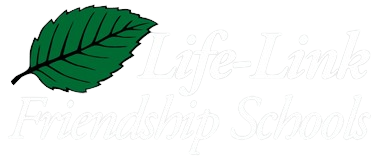A collection of useful resources for the Life-Link community interested in sustainability.
To add a link to this page, please share your link with us.
-
Easy access for the Life-Link network to valuable teaching resources and tools for connecting global educational initiatives. This would support our joint commitment to sustainability and to the principles of Care for Myself, Care for Others, and Care for Nature. Those can be found in: Synapses Project Resources and the Biomebioyou Portal:
Synapses Project Resources
Explore for free innovative teaching materials and best practices from the EU-funded Synapses project. These resources focus on sustainability citizenship, fairness, digital responsibility, and active participation, and are designed to support teachers and students worldwide.Biomebioyou Portal
A free of charge hub, named biomebioyou, for engaging resources, activities, and training opportunities on sustainability, environmental citizenship, STEAM and many more, designed to empower both educators and learners across Europe. -
Life Link Friendship Schools is a partner of ICAN, the International Campaign to Abolish Nuclear Weapons, together with 570 other organizations. Following a decade of advocacy by ICAN and its partners the Treaty on the Prohibition of Nuclear Weapons (TPNW) was adopted at the United Nations on 7 July 2017 by an overwhelming majority of the world’s nations. It will enter into legal force once 50 nations have signed and ratified it. On the UN day October24, 2020 when Guatemala had ratified as the 50th nation. It then entered into force on the 22 of January 2021. At present 52 nations have ratified the convention.
As of January 25, 2021 there are currently 86 signatories and 52 states parties.
The Treaty on the Prohibition of Nuclear Weapons (TPNW)
The Beginning of the End of Nuclear Weapons (Full length version)
It is presently available in 11 languages
English
Catalan
Czech
French
German
Greek
Italian
Japanese
Portuguese
Spanish
Swedish -
Flower Care Tips – Essential Guide on How to Care for Your Flowers
-
ReAct Toolbox (website) for information and educational tools on antibiotic resistance
-
-
A Letter to fellow citizens of Earth:
https://council.science/wp-content/uploads/2020/06/A-letter-to-fellow-citizens-of-Earth-2022.pdf -
Greta Thunberg: Humanity has not yet failed - Radio talk 75 min June 20, 2020
Climate activist Greta Thunberg urges world leaders to do more. ”Doing our best is no longer good enough. We must now do the seemingly impossible” Thunberg says in the Swedish Radio show “Summer on P1” where she takes us along her trip to the front lines of the climate crisis.
Climate change and climate science - A basic reader
Lars Rydén, Uppsala University
Fridays for Future, FFF
FRIDAYS FOR FUTURE…
or FFF, is a global movement that began in August 2018, when 15-year-old Greta Thunberg and other young activists began a school strike for climate. Every school day for three weeks, they sat outside the Swedish Parliament, demanding urgent action on the climate crisis.
To begin with, Greta was alone, but she was soon joined by others. On the 8th of September, Greta decided to continue striking every Friday until the Swedish policies provided a safe pathway well under 2° C, i.e. in line with the Paris agreement.Her actions sparked an international awakening, with fellow students and activists uniting around the world to protest outside their local parliaments and city halls. Along with other groups across the world, Fridays for Future is part of a hopeful new wave of change.
-
Sustainable development is a development that meets the needs of the present without compromising the ability of future generations to meet their own needs. Sustainable development touches on all aspects of life and should be understood by everyone. It calls for concerted efforts towards building an inclusive, sustainable and resilient future for people and planet.
Sustainable development deals with the long-term prosperity or collapse of our societies. Collapse then does not mean eradication but rather that there will be fundamental changes in the way things work to the worst. Presently the world is using too much resources and as a result we see large scale environmental impact, most dramatically climate change, as well as diminishing resource availability, such as for fisheries. For sustainable development this needs to change.
The Sustainable Development Course (SDC) is an online course developed by the Baltic University Programme. The SDC online course is free of charge and for everyone. The SDC online course was first published on the internet in 2013 and was updated in 2017.
The 2030 Agenda for Sustainable Development and the Sustainable Development Goals (SDGs)
The United Nations’ Sustainable Development Goals (SDGs) are a universal call to action to end poverty, protect the planet and improve the lives and prospects of everyone, everywhere. The 17 Goals were adopted by all UN Member States in 2015, as part of the 2030 Agenda for Sustainable Development
-
Sustainable consumption and lifestyles are growing in importance on the international stage. With this solid foundation in place, it is now time to develop a more structured, life-cycle, and evidence based understanding of sustainable lifestyles to facilitate global dialogue and measure progress. This guidebook reviews the current knowledge about what factors influence lifestyles, and proposes strategies for assessing policies and developing necessary actions.
This resource highlights 45 notable authorities on sustainability and provides a variety of informative and helpful green resources. The list is organized into a range of sustainability topics: Green Living, Climate Change & Environmental Protection News, Energy and Technology, Sustainability in Business and Government, Sustainability Careers, Sustainability, and the Arts, and Ecotourism.
-
This publication was developed as a primer for youth on the green economy, particularly since there are no youth-friendly publications that explain this issue to youth. This publication enables youth to better familiarize themselves with the green economy and the skills needed for it, such as engaging in social innovation and green entrepreneurship.

